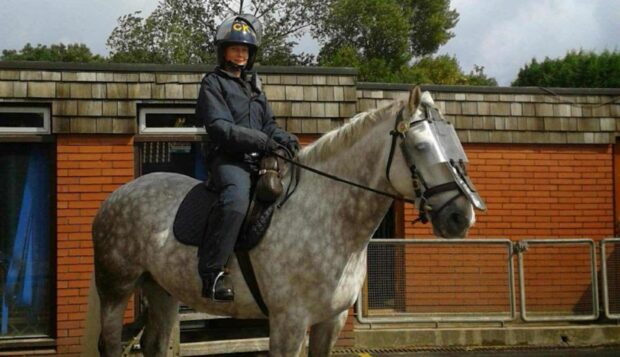Vets in Practice star Emma Milne visits Egypt where the Brooke Hospital is helping donkeys working in the harsh conditions of the brick kilns
During filming for another series of Vetsin Practice, Emma Milne visited The Brooke Hospital for Animals (BHA) in Egypt to see the work they are doing to alleviate the suffering of donkeys overworked by their owners.
Emma went to the Helwan area on the outskirts of Cairo where there are more than 2,500 donkeys working in around 130 kilns, all visited by the BHA.
“I expected to be upset, but I still burst into tears when I saw the donkeys in the Cairo clinic,” she said. “There is such a difference between seeing a photograph of a suffering animal and actually having a thin donkey covered in sores and wounds standing in front of you. The look in their eyes is awful.”
What’s being done to help
Brick kiln workers use donkeys to ferry loads of bricks to the kilns, either on their backs or by cart. They carry loads weighing up to one fifth of a tonne and make as many as 45 trips a day in temperatures up to 50c degrees.
Some donkeys are owned by brick kiln workers, but many are leased to workers by the kiln owners. Regarded as tractors, the working life of the brick kiln donkeys is very hard. They suffer heat exhaustion, pressure sores, lameness, malnutrition, broken bones and beatings.
BHA veterinary staff are working to change such attitudes, conveying the message that animals feel pain, suffer from excessive use and can be more productive if treated with kindness.
Many brick kiln owners have given the BHA permission to treat the animals and educate workers. Their mobile ambulances now visit brick kilns regularly and BHA staff have built the donkeys shade shelters and installed fresh water troughs.
Workers andowners are also being educated in equine care, so that their animals suffer fewer injuries and less illness.
Dr Sala, the vet in charge of the brick kiln operation for the Brooke Hospital says: “The most important part of his job is education – opening the owners eyes to the fact that looking after the donkeys means better brick production and more profits.”
A new series of Vets in Practice to be transmitted on BBC 1 in September.
For more information on the BHA (tel: 020 7930 0210 ) or click here to visit their website www.brooke-hospital.org.uk
Read more about donkey welfare:



